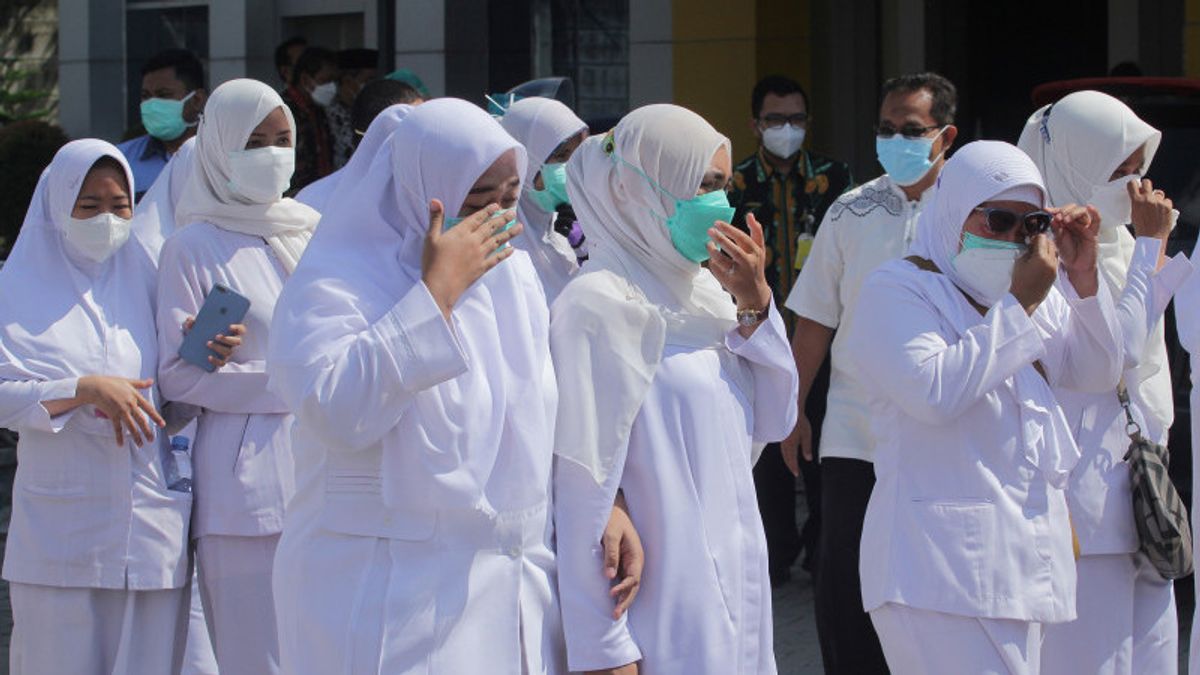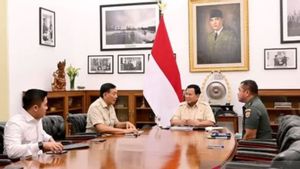JAKARTA - A number of experts and health professional organizations provide a number of important notes on the preparation of the Omnibus Law on Health.
In this case, the Legislation Body of the House of Representatives included the Omnibus Law on Health Bill as one of the 2022-2023 national legislation programs (prolegnas).
The Health Omnibus Law Bill will remove a number of laws and express health-related rules in one regulation. This bill is currently controversial due to opposition to several professional organizations.
A number of organizations also provide important notes. This note was stated at the Baleg DPR RI public hearing (RDPU) some time ago.
Deputy Chairperson of the Association of Indonesian Public Health Experts (IAKMI) Asnawi Abdullah highlighted health efforts. In the draft bill, there are three types of health efforts, namely personal health efforts (UKP), public health efforts (SMEs), and SMEs (public health efforts).
So far, Asnawi views that health efforts prioritize the paradigm of illness and tend to be reactive. By clarifying the approach, the hope is to clarify the role of the state in SMEs.
"So far, the referral system has only been running at the UKP. Meanwhile, SMEs are still unclear even though they have been mandated in the Health Law, Regional Government Law, and Presidential Decree of the National Health System. IAKMI also proposes that SME referrals starting from primary, secondary, and tertiary SMEs, are also well regulated in the Omnibus Law Health Bill," Asnawi said in a statement quoted on Friday, November 18.
Then, IAKMI Chairman Ede Surya Darmawan highlighted the plan to change the validity period of the registration certificate (STR) for health workers from a period of 5 years to without a period of time.
Ede suggested that the regulation of the article that regulates this must be studied more deeply. This is because a number of professional organizations are worried about a decline in the level of professionalism of health workers due to the need not be extended STR.
"Health workers have the potential to no longer want to attend scientific meetings, research, or community service that have been running so far, even though the dynamics of changes and the development of knowledge of knowledge about public health are growing rapidly," said Ede.
Ede also highlighted another thing, namely the issue of the Indonesian Health Workers Consile (KTKI) and the Indonesian Medical Consil (KKI) under the Minister of Health. In fact, previously the KTKI and KKI were autonomous, independent, and directly responsible bodies to the President.
For this matter, Ede asked KKI and KTKI to remain non-structural institutions (LNS) with the determination of their constituency members by the President's decision.
"Do not let the presence of the Health Omnibuslaw Bill actually cause KTKI and KKI to become institutions under ministries/agencies in the Health sector," he added.
The English, Chinese, Japanese, Arabic, and French versions are automatically generated by the AI. So there may still be inaccuracies in translating, please always see Indonesian as our main language. (system supported by DigitalSiber.id)













